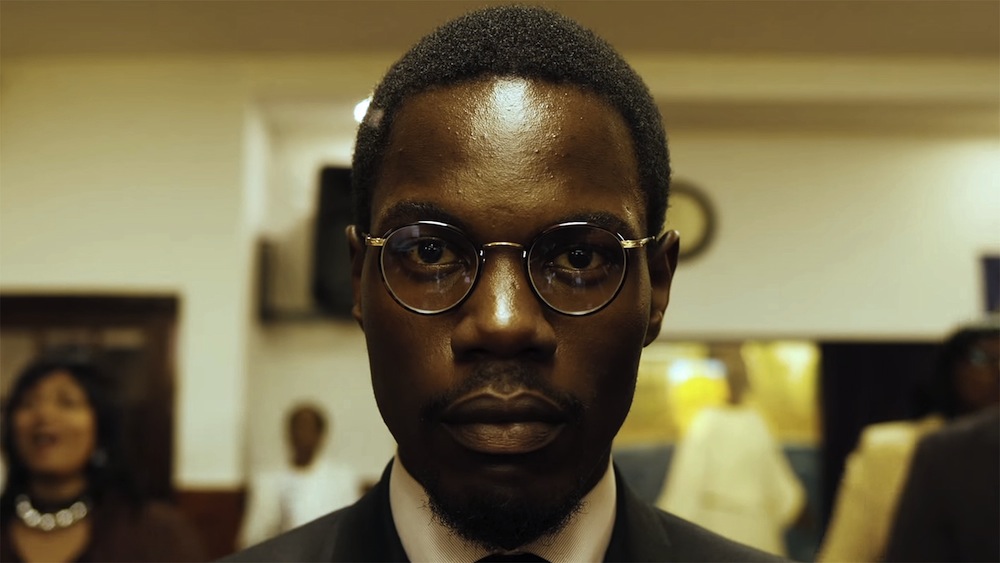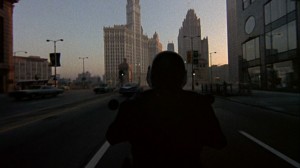
Like most great directors, Spike Lee has three general categories that his movies fall into. First, there’s the classics he built his name on, like Do the Right Thing and Malcolm X, the films that are rightly lauded as masterful works of a great artist. Next, there’s the failures, like his Oldboy remake and She Hate Me, which are (also rightly) forgotten or dismissed as missteps on a path. Third, and most interestingly, there’s the films that are too messy to be perfect but too interesting to be failures, stranded in the middle where the defenders and detractors have equal ground to argue. These are fascinating because there’s no easy line on them; they resist categorization and rating systems, slipping out of your grasp whenever you think you’ve finally got a grip on them. Spike Lee, more than most any canonized director, has a career chock-full of these, which is partly why he’s such a constant subject of study and dissection.
Not coincidentally, these are also generally my favorite of Lee’s films, from the overstuffed crime thriller Summer of Sam to the inconsistent but harrowing satire Bamboozled. Calling either one “great” feels almost disingenuous, but they’re consistently interesting, passionate projects that I’ve rewatched many more times than the true masterpieces. I feel like I have a handle on the greats, but the almost- or not-quite-greats draw me in and unfold new things each time. Da Sweet Blood of Jesus seems destined to enter this same cult appreciation no-man’s land, and not without reason: it’s straightforward yet twisted, slow yet bursting at the seams with ideas, and disarmingly direct yet thematically convoluted. It’s also stunningly beautiful and consistently engaging even in its failures, a passion project dedicated to itself to the exclusion of everything else.
The story (what little there is) follows Dr. Hess Greene, an incredibly well off black intellectual who collects artifacts from African cultures. His latest acquisition comes to him in the form of a massive (and beautiful) ceremonial dagger, presented by assistant Lafayette Hightower, an unstable man who in short order stabs Hess with the dagger before killing himself. When Hess awakes, he finds himself unharmed and helplessly addicted to blood, having to hide the body so as to not appear suspicious himself. Soon enough, Hightower’s widow Ganja begins asking about her husband’s whereabouts, and things spiral inwards from there in a web of bold symbolism and melancholy romance, confronting the audience not so much with plot machinations but with the inner life of Ganja and Hess (which is also the title of the film that Lee based Da Sweet Blood of Jesus on, oftentimes nearly shot for shot).
Where it gets tricky (and potentially off-putting for unsympathetic audiences) is in unpacking Lee’s multi-layered and dense themes, with nearly every key symbol in the film standing in for any number of things. The central vampirism is at once an allegory for wealth, greed, American violence, imperialism, the African diaspora, racism, the lingering effects of slavery, organized religion, the American black community, poverty, colonialism, sexuality, and the artificiality of performative cultures, along with probably a hundred other things I didn’t list and any combination of all of the above. So much art extricates individual themes from their broader context to examine them more completely, much like when scientists test theories in environments with more complex variables removed to gain a clearer understanding of a central idea. Lee, in contrast, presents us with the full picture all at once, linking it all together and purposefully not cleaning up or simplifying the issues. Next to a critique of organized religion, there’s the importance of the church in black communities; next to Hess’ assimilationist violence, there’s stark reminders of the impossibility of Hess’ assimilation. Ambitiously, Spike Lee attempts to document an incredibly complex system of cause and effect, where results are unclear and obscured.
What helps express this complexity coherently are the performances, especially that of Stephen Tyrone Williams as Hess and Zaraah Abrahams as Ganja. They both expertly modulate between complete realism and almost comical artificiality expertly, finding pieces of their characters that would be lost in more traditional performances. Williams’ stilted and flat delivery that initially seems amateurish soon shows itself to be reflective of the displacement and distance he feels among his rich white colleagues (he seems to have no real friends), and it falls off brilliantly as the movie goes along as he finds himself as a lover and a predator and modulates to reflect that. Abrahams is cold and distantly beautiful until her circumstances force her to confront an embodied reality, and then she’s bravely unguarded in her fear, pain, and loneliness. The pair really elevate the movie, providing both the theatricality and grounding necessary to resonate and move the audience.
Ultimately, it’s that complexity and depth on display that provides both the film’s successes and failures. Spike Lee set up what was, at its core, an impossible task, to document the whole of an immeasurably convoluted, confusing and massive system. It’s not able or meant to be a complete or exhaustive comment on any one thing. Instead, it’s a partial picture of an incredible number of things. Lee’s gambit is to show us the sinew instead of the meat, focusing on multitudinous relations instead of the things being tied together. It won’t win over many new fans, but Spike Lee’s goals don’t seem to be as sweeping or general as they were when he produced his canonical masterpieces. Instead of speaking to an entire culture, he speaks each time to segments, narrowing his focus by paradoxically complicating his themes. Da Sweet Blood of Jesus is powerful, fascinating, and awe-inspiring, but also messy and incomplete. Which is, of course, exactly how Lee meant it to be.
—
Directed by Spike Lee; written by Spike Lee and Bill Gunn; adapted from Ganja and Hess; starring Stephen Tyrone Williams and Zaraah Abrahams; 123 minutes.
Da Sweet Blood of Jesus is currently available on VOD and will be opening in select theatres Friday, February 13th.



 Derek
Derek
 Isabelle
Isabelle